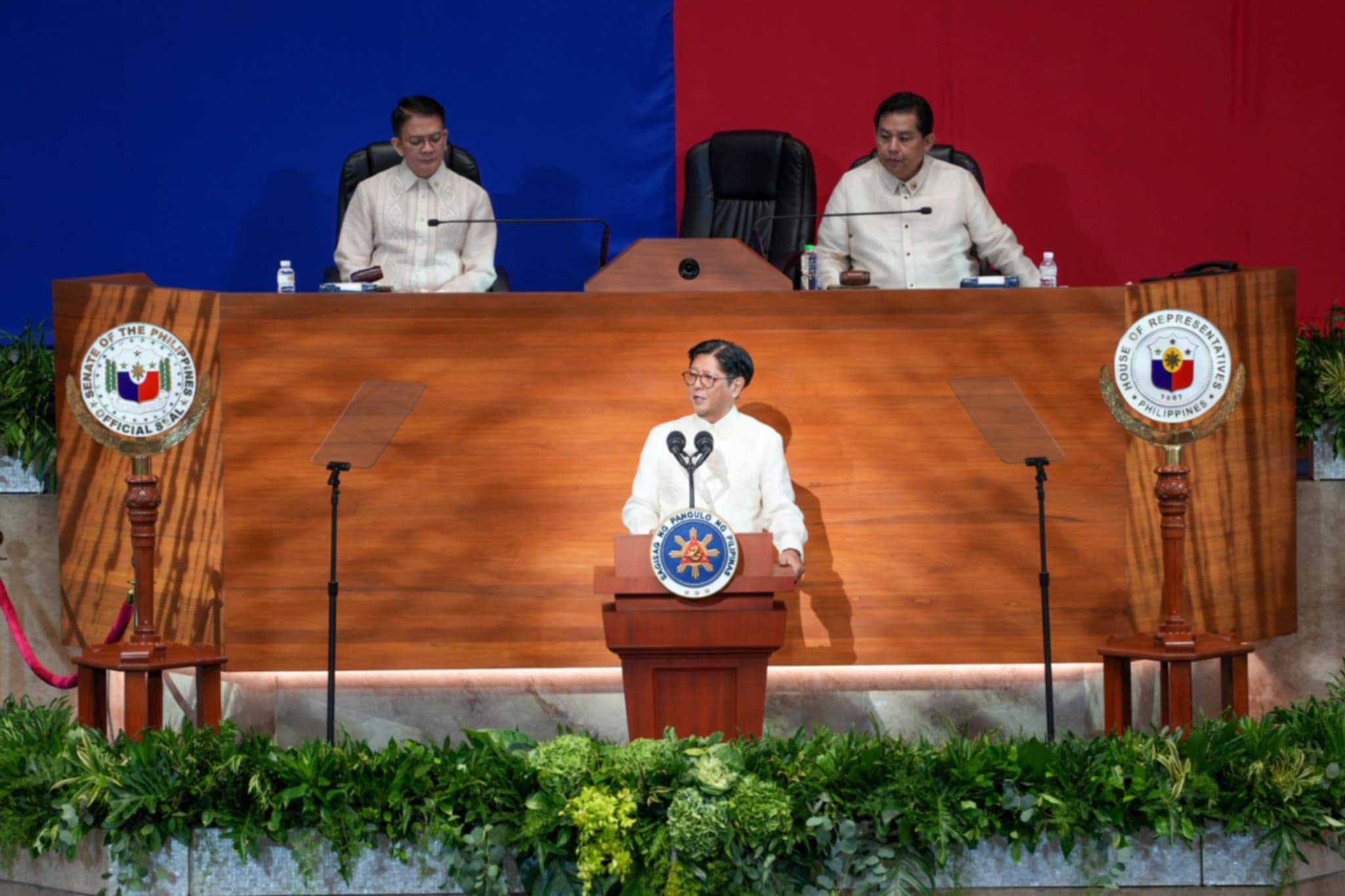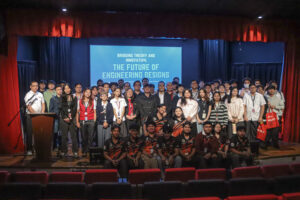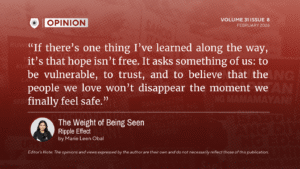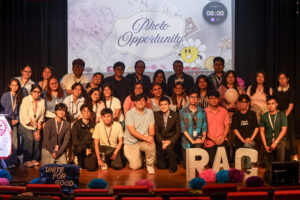By Luis Gabriel Santiago | August 2, 2025
Marcos Jr. lays out vision for a “Bagong Pilipinas,” omits pressing issues
PRESIDENT Ferdinand "Bongbong" Marcos Jr. delivered his fourth State of the Nation Address (SONA) last July 28, highlighting his administration’s efforts in various aspects of the country while presenting new priorities for the remaining three years of his term. Speaking before a joint congress, he addressed issues and laid out his initiatives for a “Bagong Pilipinas.” However, several key issues relevant to the landscape of the country remain unanswered.
The Country’s Economy
He began his address by discussing plain data, claiming that the country's economy improved, inflation rates had been lowered, and the employment rate increased.
However, he explained that this does not matter if the people continue to struggle in their respective lives. For the last three years of his administration, he claimed that he would do his utmost to improve the quality of life of the people. "Para mahigitan ang pagbibigay ginhawa," he said.
Marcos stated how he aims to position the country as a profitable investment destination, notably in emerging industries such as automotives, electronics, and biotechnology.
P20-Per-Kilo Promise
He addressed his guarantee of 20 pesos per kilo of rice, saying that he had already proven it was possible without the farmers losing profit. This sentiment, however, is not echoed by many farmers around the country. While the 20 per kilo program has been rolled out in select KADIWA centers, farmers will inevitably take hits on their already minimal earnings, benefiting consumers while squeezing the producers further.
With the proposed budget of 113 billion pesos to strengthen the programs of the Department of Agriculture and support farmers, Marcos aims to implement this throughout the entire country.
Marcos claims that ever since the start of his administration, more than eight and a half million farmers and fishermen have received aid. While he gave all these actions and reforms, there was an absence of a breakdown that proves whether the figures were accurate or not.
Unresolved Crises
The president further addressed the concerns of the country regarding other public services and utilities, such as electricity and water, promising to minimize this crisis in the last years of his administration. He laid out that around 200 electric plants will be finished in the next 3 years, and around 1 million homes will be provided with electricity through what he calls a “solar power home system.”
Then he shed light on the education crisis that runs rampant in the country. He proclaims that education is his administration’s primary directive until it ends, stating that the education sector was given the largest slice of the national budget, “puspusan nating inaayos ang sistema ng edukasyon.”
With a projected budget of 1 billion pesos, his goals include building 300 barangay child development centers, improving the healthcare granted to both students and teachers, building about 40,000 classrooms, and reducing the burdens of teachers by the end of his term, among others.
Support for Philippine Healthcare
Marcos states that Philippine Healthcare has always been lacking and inaccessible. Expensive medicine, lack of healthcare facilities, and a shortage of doctors, especially in remote areas.
With a budget of 1.7 billion pesos, he aims to improve the cancer assistance fund, provide free dialysis and kidney transplants, increase funds for medical assistance, and expand the zero-balance billing in public hospitals, ensuring that any service is free of charge. “We are not building for today, we are building also for tomorrow,” he added.
Addressing Other Concerns
He slams substandard infrastructure and delays in projects while stating that in his “Build Better More” infrastructure program, the safety of the people remains of utmost priority.
He highlighted that 83 billion pesos worth of illegal drugs have been confiscated in raided warehouses in numerous areas of the country. He compares his 3-year anti-drug campaign to the previous administration, stating that the numbers and arrests have begun to match former President Rodrigo Duterte’s campaign.
The Quiet Parts
Despite tackling a wide array of topics concerning the country, several key matters were not addressed, and pressing questions were left unanswered.
Tackling foreign policy, Marcos states that the Philippines is now better equipped to fight for its sovereignty against international threats. However, tensions continue in the West Philippine Sea, with China’s unrelenting incursions and aggression amid Philippine waters. Yet no stances were given by the president regarding any form of resistance or a fight for sovereignty, especially after his proclamation in last year’s SONA.
“Our foreign policy remains the same. The Philippines is a friend to all. The Philippines is an enemy to none.” This line, Marcos states, will be the main focus of the country as it hosts the 2026 ASEAN Summit.
While the president clarified the country’s policy, Marcos did not delve into topics on an international scale. There were no updates on diplomacy with major partners or on where he positions the country in the growing U.S.-China rivalry.
He made no mention regarding the ongoing proceedings of the International Criminal Court (ICC) into former President Duterte’s “war on drugs.” He also did not indicate any plans to re-enter the Rome Statute, despite calls for the country to rejoin by human rights activists and other groups.
To add, Vice President Sara Duterte was not seen in the Batasang Pambansa Complex, and Marcos completely omitted her name and her impeachment case altogether. The allegations of the misuse of confidential funds and other controversies surrounding the Vice President were not touched upon as well.
Marcos intends to strengthen the disaster preparedness programs of the country amid climate change and the various typhoons that have already hit the country. Moreover, he observed that most projects regarding flood control were lacking and failing, calling out government officials who use the people's money for their own gain.
“Mahiya naman kayo sa iyong kapwa Pilipino,” this was Marcos’ message to corrupt politicians that are stealing the future of the people. Yet, he did not mention any names or government officials that fit the “corrupt” label. Also, no government actions were laid out against the misdoers; only a message was given.
Concluding his address, he assures the people that despite all the challenges that the world throws at them, the government will always have their back. “Tayo ito, Tayo ang bagong Pilipino,” Marcos said in his closing line as the session was adjourned. While the president touched upon a broad range of topics, some of Marcos’ stances remain unsaid on matters concerning the state.




